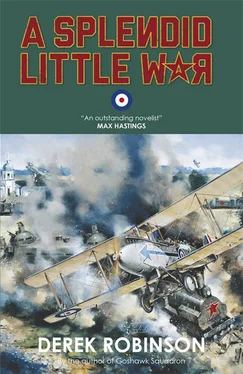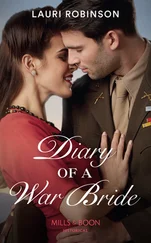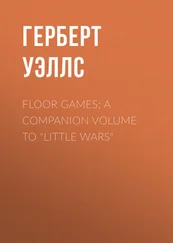The flood of words made the robber gape. Borodin translated, very briefly.
“I said a damn sight more than that,” Jessop said.
“I told him you thought he was an utter cad.”
The robber mumbled something, and waved his pistol.
“You have insulted him,” Borodin said, “and he will shoot you first.”
“I don’t like the way his hand is twitching,” Susan Perry said. At that point the cook appeared with three plates of hot omelettes. The robber salivated so much that he dribbled down his chin. “Tell him to sit down and eat,” she said. Borodin did. The man sat and ate and drank from her glass. His left arm hung uselessly and he ate with his right hand, which meant he had to put down the pistol. Jessop’s hand sneaked across the table and stole it. His caution was wasted. The man had no time for anything but food. The cook watched with interest. Even in vodka dens like hers, customers rarely waved pistols. “More omelettes,” Borodin told her. “More wine.” She went. As the man finished one omelette, Jessop slid another in front of him.
“He has a very bad abscess on his left arm,” the doctor said. “Unless it’s treated the whole arm could become infected, possibly gangrenous. He must come with us so I can treat it.”
Borodin translated, and the man cried, although he did not stop eating and drinking. “I think that means he agrees,” Borodin said.
Ten minutes later, Lacey arrived. “They didn’t have what I wanted, but I drew pictures and they’re getting it for me, later today. What’s wrong with him?” The man was asleep with his head on an empty plate.
“He held us up.” Jessop waved the pistol. “But I read the riot act to him and he realized the folly of his ways.”
“He was starving,” Susan Perry said. “We filled him up with omelettes and he conked out. He’s a wounded veteran.”
“Probably a deserter,” Borodin said. “Who can blame him? Badly armed, badly led, badly fed. But deep down he’s got a heart of gold.”
“He’ll need a jolly good scrub before you can find it,” Lacey said.
They drove the man back to the trains. Chef made a platter of sandwiches and he wolfed them while she washed his arm and examined the abscess, swollen red and hard, blue in the centre, where the skin was so thin that she could see the yellow pus beneath, clearly ready to rupture; so she opened it and let the pus escape. This was painful but he didn’t flinch. The sandwiches took his full attention. She finished the treatment, covered the injury with lint soaked in boric-acid solution, bandaged the arm, and told him, through Borodin, to keep the bandages on for a week.
Borodin gave him back the pistol — Jessop said it was broken anyway and wouldn’t fire — and he drove the patient and Lacey back to Orel. “It was a lot of needless fuss,” he told Lacey. “He waved his gun, and I said we’d give him fifty roubles if he’d stop being a nuisance, and he was happy with that. But Jessop had a fit of indignation and nearly picked a fight.”
“Pilots,” Lacey said. “Excitable folk. Not you, Count.”
“No, of course. I have your famous British stiff upper lip. I keep it in an old cigar box.”
*
The week passed quickly. The air crews played their own version of polo, riding the ponies and swinging the croquet mallets at croquet balls. There were no rules, and nobody kept score. Perhaps there was no score.
Wragge and Borodin watched. “We are a sporting nation,” Wragge said. “Reminds me.” He felt in his pockets for a piece of paper. “Meant to ask you. Goolie Chits. Worth doing?”
Borodin read H.Q.’s signal. “This assumes the finder can read,” he said. “Odds are ten to one against. If he reads, will he understand? Fifty to one. If he understands, will he trust us? A thousand to one.” He folded the paper and gave it back. “This is Russia, Tiger.”
“Oh, well. We haven’t any gold sovereigns, anyway.”
The poker school reopened. It had closed when Dextry cleaned everyone else out and said he was keeping the money to show people the folly of gambling and besides, he needed it for his pension. After his crash, Uncle refused to release the money, even for I.O.U.s. Now there was pay to gamble with.
Lacey bought many sacks of potatoes in Orel market; also eggs, milk, radishes and loaves of black bread as hard as wood. The value of the rouble was tumbling daily and he spent lavishly.
He stayed in contact with the outside world. Signals from the British Military Mission H.Q. informed him that Captain Butcher had been transferred and that Captain Stokes, Grenadier Guards, would assume his duties.
“Stokes is a fool,” the adjutant said. “I knew him in France. Wears a hairnet in bed.”
“He says he needs a complete audit of squadron stores.”
Brazier grunted. “Stop the war, H.Q. wants to count the bullets.”
“The impertinence of it. I shall put Master Stokes in his place.”
While Lacey wrote, Brazier wound up the gramophone and played Scott Joplin records. “Fig Leaf Rag” was good. Sprightly was the word for it. He liked “Magnetic Rag” too, you could imagine the regiment stepping out in style behind a smart band doing its best with “Magnetic Rag”. He wasn’t so keen on “Gladiolus Rag”. Didn’t have the same pep. Might make a slow march.
Lacey stopped tinkering with his first draft, made a clean copy and showed it to him.
Squadron is fighting for its life against Bolsheviks by day and tribal warriors of Georgi Godunov by night stop Inflicting heavy casualties stop Instances of gallantry too frequent to mention stop Morale holding good but where is trombone trumpet E flat banjo requested in last signal query stop Regret audit squadron stores impossible while under fire stop Suspect Red high command are intercepting signals stop If s o suggest communicate in Welsh Gaelic Portuguese Cherokee stop Squadron Leader T. Wragge Officer Commanding.
Brazier read it. “The C.O. is losing his wits.”
“The strain of battle.”
“If Stokes comes here to see for himself you’re skewered.”
“We’re hundreds of miles by rail from H.Q. Two days’ travel, at least. Stokes won’t leave Taganrog.”
Brazier yawned, and returned the paper, holding it by a corner between finger and thumb. “I’ve seen officers court-martialled for less than this. The war isn’t made so that you can write your Comic Cuts.” He put on his cap and picked up his blackthorn stick.
“You may be right, Uncle,” Lacey said. “But if not for Comic Cuts, then what is it for?” Brazier didn’t stay to argue.
2
The C.O. sat in his Pullman and wondered how to improve the success of his Camels.
Height and surprise were always a good start. If the Camel Flight could claw its way up to, say, eleven thousand, and place itself between the sun and the enemy, there was a good chance of surprising a formation at, say, eight thousand. The Camel was a small aeroplane. Even four might well get lost in the dazzle. But when the Camels dived for a great distance, they built up a great speed, at least a hundred and fifty miles an hour or more. Some said two hundred.
That’s where the trouble began.
Controlling the plunge became progressively harder. If the airflow started to spin the propeller faster than the power of the engine to turn it, the entire Le Rhône rotary might fail, might even blow up. Or the propeller might fly off and shatter. So — no long, full-blooded dive. It must be held in check.
Even so, the guns were aimed by aiming the aircraft, and the Camels would reach the enemy at a speed that gave their pilots only brief seconds to fire before they must alter course. What’s more, their targets would not be steady as a rock, they would be swerving and sliding out of the gunsights. Next, their dive would put the Camels below the target. Now the enemy had the advantage of height.
Читать дальше











